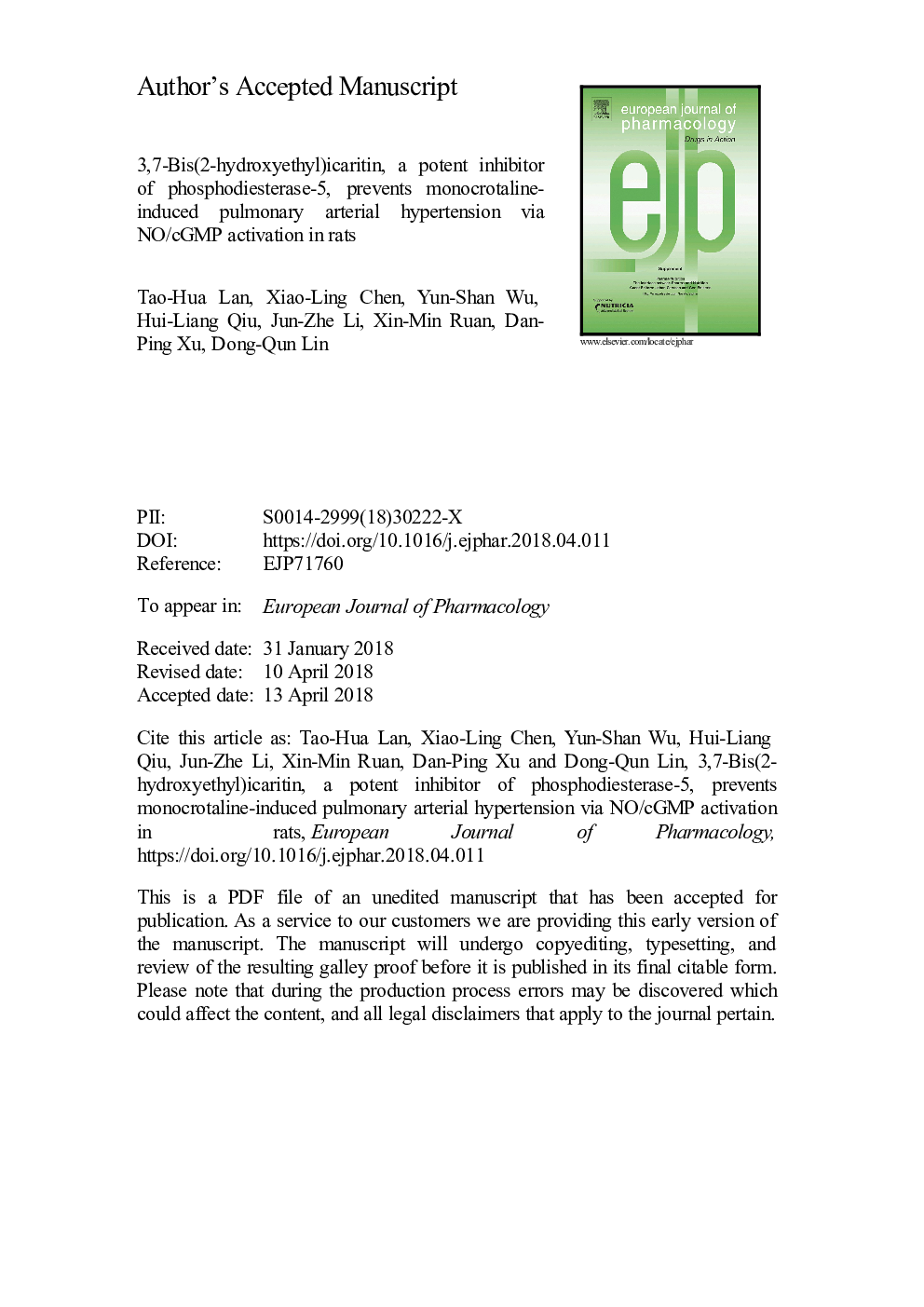| Article ID | Journal | Published Year | Pages | File Type |
|---|---|---|---|---|
| 8529077 | European Journal of Pharmacology | 2018 | 35 Pages |
Abstract
Pulmonary arterial hypertension (PAH) is a chronic progressive disease which leads to elevated pulmonary arterial pressure and right heart failure. 3,7-Bis(2-hydroxyethyl)icaritin (ICT), an icariin derivatives, was reported to have potent inhibitory activity on phosphodiesterase type 5 (PDE5) which plays a crucial role in the pathogenesis of PAH. The present study was designed to investigate the effects of ICT on monocrotaline (MCT)-induced PAH rat model and reveal the underlying mechanism. MCT-induced PAH rat models were established with intragastric administration of ICT (10, 20, 40â¯mg/kg/d), Icariin (ICA) (40â¯mg/kg/d) and Sildenafil (25â¯mg/kg/d). The mean pulmonary arterial pressure (mPAP) and right ventricle hypertrophy index (RVHI) were measured. Pulmonary artery remodeling was assessed by H&E staining. Blood and lung tissue were collected to evaluate the level of endothelin 1 (ET-1), nitric oxide (NO), and cyclic guanosine monophosphate (cGMP). The expressions endothelial nitric oxide synthase (eNOS) and PDE5A in lung tissues were determined by Western blot analysis. The results showed that ICT reduced RVHI and mPAP, and reversed lung vascular remodeling in rats with MCT-induced PAH. ICT also reversed MCT-induced ET-1 elevation, NO and cGMP reduction in serum or lung tissue. Moreover, ICT administration significantly induced eNOS activation and PDE5A inhibition. ICT with lower dose had better effects than ICA. In summary, ICT is more effective in preventing MCT-induced PAH in rats via NO/cGMP activation compared with ICA. These findings demonstrate a novel mechanism of the action of ICT that may have value in prevention of PAH.
Related Topics
Life Sciences
Neuroscience
Cellular and Molecular Neuroscience
Authors
Tao-Hua Lan, Xiao-Ling Chen, Yun-Shan Wu, Hui-Liang Qiu, Jun-Zhe Li, Xin-Min Ruan, Dan-Ping Xu, Dong-Qun Lin,
